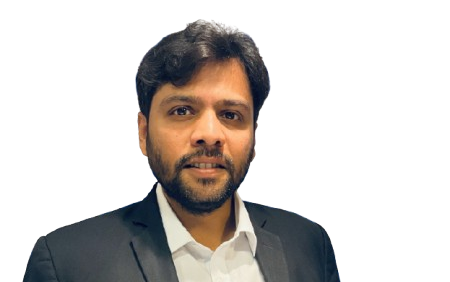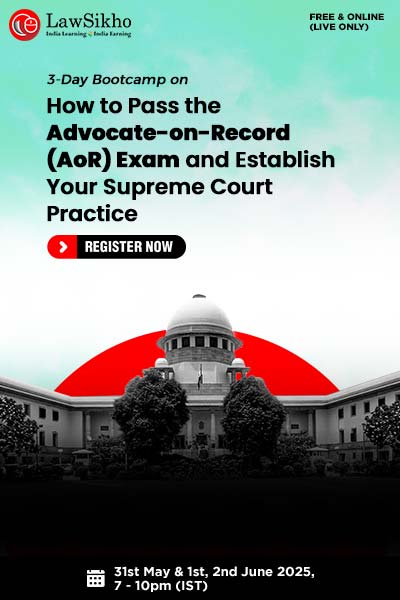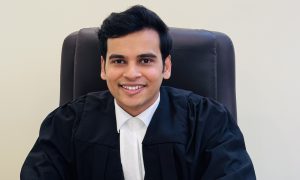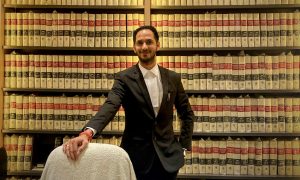This interview has been published by Anshi Mudgal and The SuperLawyer Team
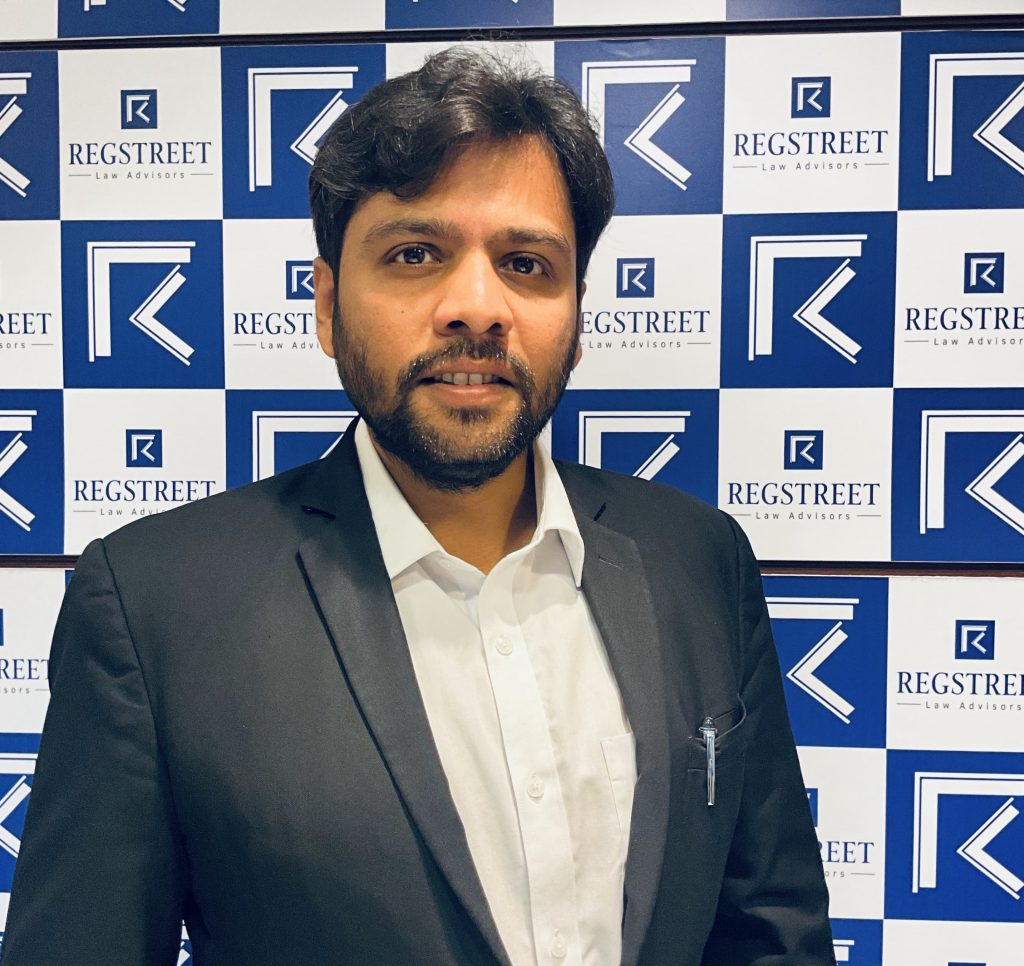
Looking back, why did law resonate with you as your chosen path?
My early inclination toward debate, theatre, and structured argument made the law a natural fit. The profession offered intellectual rigor, stability, and a meaningful way to engage with real-world issues, both theoretically and practically. During my early career, I had the opportunity to work in in-house roles and Litigation Chambers, which confirmed my affinity for litigation. Since then, there has been no turning back.
What truly drew me in was the dynamic and intellectually stimulating nature of courtroom practice. Over time, it became a calling. The constant influx of new challenges kept me engaged and reaffirmed my decision to pursue law as a lifelong profession.
Your initial years in legal practice involved real estate disputes and civil litigation before transitioning to regulatory and commercial litigation. How did those early experiences shape your legal philosophy and prepare you for handling high-stake, sector specific financial regulatory matters today?
Starting out in civil and real estate litigation helped hone essential skills, such as precise drafting, procedural discipline, and strategic planning. Early mentorships were instrumental. I was fortunate to begin at Bhave & Co. and later work under Mr. Mehernosh Pardiwala. Both mentors entrusted me with complex matters early on and encouraged independent advocacy, which helped build courtroom confidence and strategic maturity. It was compounded by the faith reposed in me by Ms. Priyanka Khemani at the then Anand & Anand & Khimani.
Civil litigation, particularly involving title disputes and contractual claims, instilled in me a sense of procedural rigor and the value of legal precision. These foundational skills now serve me well in high-stakes regulatory disputes where the stakes often involve reputational risk, statutory interpretation, and deep sectoral insight.
At Regstreet Law Advisors, I have the privilege of working under Mr. Sumit Agrawal, a leading authority in securities and financial regulatory law. We as Regulatory Lawyers use our nuanced understanding of how law, policy, and financial markets intersect. One may not expect the need to interpret balance sheets or NSE / BSE disclosures in legal pleadings, yet these elements often define the outcome in financial regulatory litigation. For instance, we recently succeeded in a matter involving allegations of non-disclosure of a penalty imposed by the Hon’ble National Green Tribunal. To secure a favorable outcome, we had to integrate environmental law, civil and criminal procedure, and corporate and securities law, a true example of the 360-degree interconnectedness that defines modern regulatory law practice.
What inspired your decision to begin independent practice in 2017? Could you share some of the key challenges you faced during that transition, and how you overcame them?
As a first-generation lawyer, the desire to build something of my own, grounded in courtroom skill and client trust, was a powerful motivator. Independent practice meant owning every aspect of litigation, drafting, arguing, client relations and even managing office logistics.
I was deeply inspired by senior advocates on both the Original and Appellate Sides of the Bombay High Court. Watching them argue with clarity, depth, and composure reinforced my aspiration to take ownership of cases end-to-end.
The transition was demanding. With no safety net, just grit and a phonebook, I began reaching out to friends and seniors across Maharashtra to offer court appearances, even for simple mentions or adjournments. These appearances helped me gain visibility and build trust. Gradually, I started receiving direct briefs and appellate work.
My first office was a modest 4×8 sq. ft. space in Yeshwant Chambers near Kala Ghoda. I managed everything from filing, setting up a library to client meetings personally. I also appeared in matters across jurisdictions, MIDC property disputes in Ankleshwar, revenue entries before Tehsildars in Jalgaon, and DV Act matters in Vasai. I even had the opportunity to appear in PMLA and Economic Offences Wing matters. These diverse experiences added to my procedural agility before I eventually streamlined my focus on the Bombay High Court and City Civil Court.
Those early years, though uncertain, taught me resilience, the value of consistency, and the importance of professional relationships, all of which remain central to my practice today.
You’ve represented both high-profile individuals and corporate clients. How do you balance legal strategy with media attention and client confidentiality so that the integrity of the case isn’t compromised by public narratives or media trials?
Legal strategy must always be rooted in facts and law. However, in an age of media trials, perception management becomes a necessary adjunct. Often, public narratives overshadow judicial processes, which can unfairly influence outcomes or reputation.
In a world of deepfakes and viral outrage on Instagram, WhatsApp and X (formerly Twitter), courtroom integrity matters more than ever. Public biases whether toward ultra-high net worth individuals or marginalized communities are amplified. Blind faith in authority, or public outrage, can distort the legal lens. My goal is to maintain faith in the judicial process and focus on the courtroom while maintaining a strict code of discretion. The courtroom, not the comment section, is where justice belongs.
In my experience with high-profile matters, media attention peaks during accusations but dramatically drops once a favorable order is obtained. That’s why strategic restraint is often more powerful than a soundbite.
I believe the only legitimate forum for justice is the courtroom. Media narratives can’t be controlled, but they should never dictate strategy. While the clients may feel anxious, a lawyer ought not to. With preparation, discretion, and a client-first focus, we safeguard both legal and reputational interests.
As head of the Litigation & Dispute Resolution practice at Regstreet Law Advisors, how do you approach complex regulatory disputes in rapidly evolving sectors such as competition law, especially considering your involvement in the landmark litigation against Reliance Jio?
Regulatory disputes require a unique blend of legal depth, policy awareness, and sectoral insight. At Regstreet, we adopt a layered approach, combining doctrinal legal strategy with industry expertise and real-time regulatory updates.
I’m supported by a remarkable team of associates whose diligence ensures that factual accuracy, procedural compliance, and early-stage preparation are solid. This foundation allows me to focus on broader strategy and advocacy.
Mr. Sumit Agrawal, our Managing Partner, has been an invaluable mentor. His regulatory background as a former SEBI officer allows him to anticipate the thought process of prosecuting authorities – insight that has shaped my litigation instincts and strategic outlook. Our philosophy is clear: respect the regulator, understand the sector, and advocate with clarity.
In the Reliance Jio case, I represented one of the respondents in the writ petition and the original complainant before the CCI. The matter involved allegations of cartelisation to deny Points of Interconnection (POIs) and delay Reliance Jio’s market entry. Being part of that matter so early in my independent practice and arguing alongside some of the most eminent names in the legal profession was transformative. It reinforced my faith in preparation, consistency, and perseverance.
With growing legal scrutiny on digital platforms, how do you balance the defence of artistic freedom with the legal thresholds of defamation and public sentiment in media law cases?
Balancing artistic freedom with legal thresholds requires a constitutionally grounded yet sensitive approach. A recent matter involved a stand-up comedian who made remarks about a political leader. While some viewed the act as satire protected under Article 19(1)(a), others saw it as defamatory. This divergence typifies the legal tightrope in media law.
In one case, I represented an artist (a well-known comedian) whose show faced an injunction on the grounds of hurting religious sentiments. The Hon’ble Delhi High Court dismissed the plea, allowing the show to be released. That experience affirmed the strength of our democracy and the judiciary’s role in balancing expression with accountability.
Ultimately, the independence of our courts allows satire and expression to coexist with legitimate legal recourse. In handling such cases, we focus on ensuring the content stays within legal bounds while vigorously defending freedom of expression.
You’ve been actively involved in legal education, teaching business and media law, and engaging with students through workshops and seminars. What is your motivation behind taking up this role and what key advice would you offer young legal professionals entering the field today?
My involvement in legal education stems from a simple but pressing need to bridge the gap between what law schools teach and what legal practice actually demands. The endless debates of NLU vs. non-NLU, Tier 1 vs. boutique, money vs. exposure are increasingly irrelevant. The real game is about learning faster than the world changes. It’s about upskilling every single day.
Statutes and case law are taught well in classrooms. But what about courtroom craft? The silence before an objection? The art of managing client trust or decoding what’s unsaid in a negotiation? These are rarely part of the syllabus, yet central to practice. Through lectures and workshops, we practitioners try to fill in those blanks to make legal education more holistic, grounded, and practice-ready.
Teaching, for me, isn’t just a way of giving back. It keeps me intellectually agile, sharpens my thinking, and refreshes my perspective. Being around young minds curious, unfiltered, and sometimes irreverent is energizing. It also ensures I stay tuned in to emerging thought and even pop culture, which often influences how the law is perceived and applied.
My advice to young professionals? Focus on substance. Master procedural law, contracts, evidence, and constitutional principles. Explore internships widely, be it litigation, corporate or policy to discover your true calling. Build a reputation for reliability, not just credentials. Law is a marathon, not a sprint. Stay curious, stay adaptable and most importantly, stay grounded.
Further, as Artificial Intelligence evolves, legal practice must evolve with it. The issue isn’t the use of ChatGPT or Deepseek – it’s a powerful tool, and we must embrace it. But no matter how advanced technology becomes, it cannot replace the value of human judgment, analysing the source of law or using your strategic insight. We must continue to apply our minds, not just automate our outputs or look for a “template”. The real edge will always lie in how well we integrate emerging tools while staying true to the craft.
Law is a marathon. It requires adaptability, resilience, and lifelong learning. As Steve Jobs said, “Stay hungry, stay foolish” – a mantra that resonates deeply in the legal profession.
With a demanding career that spans high-stakes litigation, teaching, and public speaking, how do you maintain a sense of personal balance and well-being? What practices or routines help you sustain performance without burnout?
Litigation demands mental stamina, emotional composure, and the ability to stay sharp at all times. But clarity doesn’t come from constant motion, it requires deliberate pauses. I make it a point to disconnect periodically. Without that reset, it’s easy to slip into autopilot, and litigation is no place for mechanical thinking. Strategy needs space.
At Regstreet, we believe in celebrating the process, whether it’s watching a film together, attending a play, or unwinding at a concert after a long matter. These shared moments go a long way in keeping the team grounded and cohesive.
Cricket has been a personal outlet. I’ve had the privilege of playing for and leading the Bombay High Court team in several tournaments. It’s more than a game; it’s a way to channel focus, discipline, and camaraderie. I also turn to theatre, trekking, cooking, and cinema to recharge. Saturdays are usually reserved for such pursuits, while Sundays often involve preparing for the week ahead.
Teaching, too, is a form of balance. It renews my intellectual curiosity and gives me space to reflect beyond the courtroom.
Everyone’s rhythm is different. For me, personal well-being isn’t an indulgence – it’s a professional investment. It’s what keeps the passion alive and the performance sustainable.
Get in touch with Abhineet Pange –

